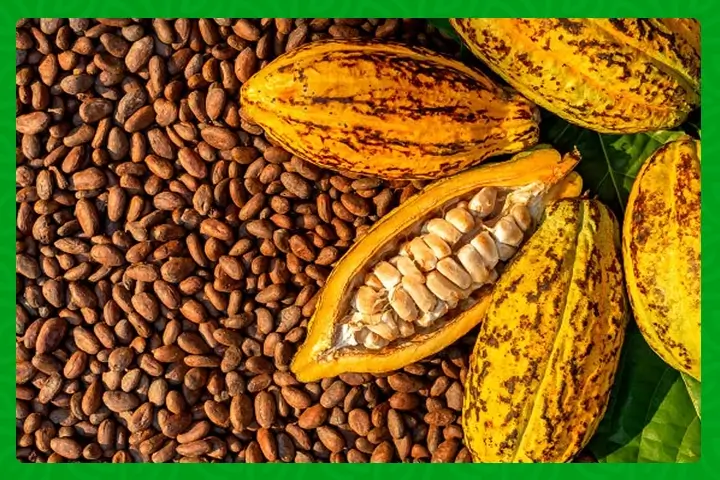
When big money meets smallholder farms good things can happen. The African Development Bank Group has just approved a €100 million financing facility for Sucres et Denrées Côte d’Ivoire to shore up cocoa production and push sustainability deeper into the supply chain. At an approximate value of US$117.3 million, this two year renewable facility is designed to do more than move beans. It aims to move lives.
A finance lifeline for the backbone of global chocolate
Côte d’Ivoire supplies more than 40 percent of the world’s cocoa, producing roughly 2.3 million metric tons in the 2022 to 2023 season. That scale makes the country central to global chocolate supply chains, and any investment here ripples out to farmers, processors and consumers worldwide. The AfDB facility will expand pre-financing arrangements with cooperatives and local suppliers, closing the working capital gaps that often keep small producers from reaching their potential.
How the package is structured
The facility is a blended financing package. It includes €25 million from the Africa Growing Together Fund, a co-financing initiative involving the China Development Bank, plus an additional US$10 million from the AfDB’s Agribusiness Small and Medium Enterprise Catalytic Financing Fund. The structure aims to combine concessional support with catalytic funding to mobilize more private capital into the sector. The two year renewable design gives cooperatives a predictable source of pre-harvest and aggregation finance.
Practical benefits for farmers and rural communities
This is where the numbers meet the mud and the morning routines of cocoa households. The program is projected to benefit more than 50,000 smallholder farmers by improving access to finance and technical assistance. That means earlier purchases of inputs, better quality seedlings, stronger post-harvest handling and more reliable deliveries to buyers. The facility also targets supply chain traceability and climate resilience, two urgent needs as weather shocks increasingly threaten yields.
A push for sustainability and jobs
Beyond production volumes, the AfDB stresses sustainability. The facility is expected to strengthen cocoa sourcing and export capacity while promoting environmentally sound farming practices and transparent traceability. It also aims to create rural jobs, with a particular emphasis on opportunities for youth and women. For communities that depend on cocoa, those jobs and improved incomes can mean better schools, cleaner water and healthier households.
Macroeconomic fit and export upside
The investment aligns with Côte d’Ivoire’s National Development Plan 2021 to 2025, which focuses on agro-industrial diversification as a route to faster growth. The AfDB expects the program to increase export volumes by up to 10 percent annually and to improve liquidity across West African markets, making the cocoa sector more attractive to international investors. In short, the facility is intended to be both a safety net and a growth engine.
Why pre-financing matters
For many smallholders, the biggest obstacle is cash flow. Planting, fertilizing and harvesting require cash now, while payments for cocoa can take weeks or months. Pre-financing arrangements let cooperatives front money for inputs and collection, reduce reliance on high cost informal lenders, and improve the quality of beans sent to exporters. With better finance, farmers can invest in sustainable practices that pay off over multiple seasons.
Risks and what success will look like
No financing plan is a silver bullet. Success hinges on transparent fund management, clear performance metrics, and strong links to extension services so that finance is paired with on-farm knowhow. Monitoring will be essential to ensure funds reach the intended cooperatives, improve traceability and measurably reduce climate and market risk for smallholders. If those pieces fall into place, the result could be a more resilient cocoa sector and a clearer pathway for private investment into agricultural value chains.
The human story behind the numbers
Imagine a cooperative leader getting funds early to buy improved seedlings and training in better pruning and pest control. Imagine a young woman in a rural village using wages from improved harvests to pay school fees for her siblings. That is the story this facility is trying to write at scale. If the program reaches its targets, thousands of households could see steadier incomes and more predictable livelihoods. That is development measured in real lives, not just in balance sheets.
The AfDB facility is a significant bet on the future of cocoa in Côte d’Ivoire. It pairs capital with a focus on traceability, climate resilience and inclusive growth. The headline number is headline grabbing, but the real test will be whether the finance translates into better farming practices, stronger cooperatives and tangible improvements in rural incomes. Get those outcomes right and this facility will be remembered for lighting a path from bean to bar that benefits producers and markets alike.
Stay updated with the latest farming tips and agriculture industry news from Africa by subscribing to our newsletter. Don’t miss out on valuable insights and updates. Follow us on Twitter, LinkedIn, and Facebook to join our farming community and stay connected with us.


















